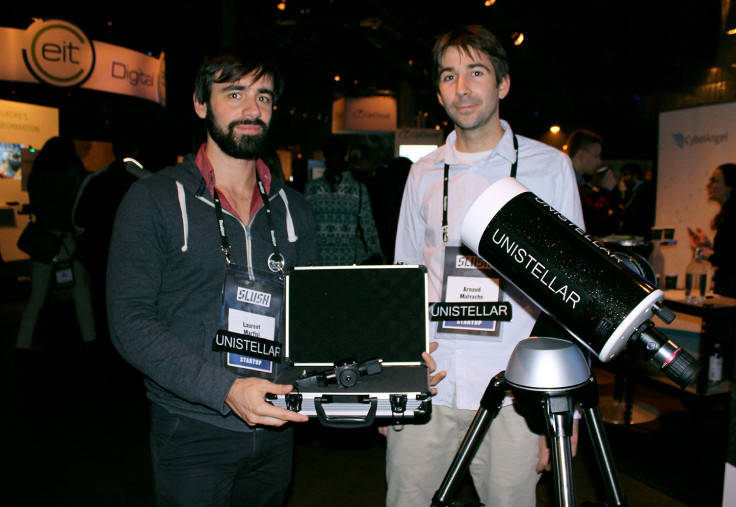Unistellar: This telescope lets consumers detect asteroids to help keep Earth safe
You can now see a galaxy from the comfort of your home thanks to an algorithm-enhanced telescope.
A French startup has developed a telescope for enthusiasts and consumers that makes it possible for people to view nebulas and galaxies from their own homes without needing to have access to an expensive research telescope.
Unistellar is the brainchild of Dr Arnaud Malvache, a scientist working in signal processing of biological images for the French national research body CNRS and currently stationed at Aix-Marseille University.
Malvache is a keen amateur astronomer who began inventing a new type of telescope in his spare time using patent-pending light amplification technology in early 2015 to help people explore the skies in greater detail, due to feeling frustrated by the limitations of consumer products today.
"In a standard telescope, you can't see much. There are only four planets that you can really observe – the rest are too far or too small. When you want to see other objects, you are disappointed because they are hard to find and you just see grey clouds due to low luminosity," Malvache, Unistellar's chief executive, told IBTimes UK at the Slush 2016 tech conference in Helsinki, Finland.
"So we have designed the amplified vision telescope that integrates light, uses algorithms to process images and then projects the results directly into the eye piece of the telescope."
How the telescope works
The amplified vision telescope works using a special low-light sensor that works together with an on-board computer contained in the eyepiece. The startup has developed computer algorithms that treat the image seen by the telescope and perform field recognition in order to make the image much clearer, almost as if it comes from a Nasa space telescope.
And to make the experience richer, the onboard computer is also able to cross-reference the image seen through the telescope against a widely-used scientifically-verified database of astronomical objects in order to tell you which nebula or galaxy you happen to be looking at.
Unistellar is currently developing an eye piece that can be adapted by existing telescopes, as well as a full compact, lightweight, automated telescope that follows sky rotation and points automatically at objects. The startup plans to debut the products at CES 2017 in January and hopefully ship it later in the year.
The telescope is developed with consumers and astronomy enthusiasts in mind. As such it will be priced competitively against other existing consumer telescopes, and the creators will offer API support to enable different applications in the future.

Now you too can help protect Earth by tracking asteroids
Scientists are concerned that near-Earth asteroids have the power to destroy big cities if they enter the Earth's atmosphere and become meteors, like the 2013 Chelyabinsk meteor event in Russia, which damaged over 7,200 buildings and injured 1,500 people in six different cities in the Urals region.
The total kinetic energy produced by the meteor was equivalent to 29 times the energy released by the Hiroshima atomic bomb, and there are concerns that a large enough asteroid could even destroy the Earth and wipe out mankind.
To help prevent this, Unistellar wants to encourage people to participate in citizen science to help keep a lookout for dangers. The startup is working with an engineer who recently retired from the French space agency to build the capability into their products to create of a network of installed telescopes that search for asteroids and then send their findings to scientists to analyse.
"It's a good way to participate in science as you can do it yourself. You have to go outside and use your own devices. Near-earth objects [like asteroids or comets] need to be well characterised so scientists are really interested in having a network of devices available to see asteroids from different angles," explained Malvache.
"People can provide data that will be used to characterise the asteroids so we know more about their shape and trajectory to prevent them from hitting Earth."
© Copyright IBTimes 2025. All rights reserved.






















